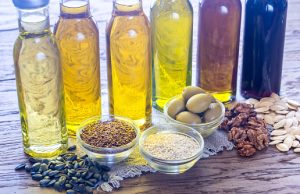 Many people fear the word fat, as it has a negative connotation. We are bombarded by packages that say “low fat,” “reduced fat,” or “no fat,” which clearly goes to show that as a society, we don’t want fat anywhere near us. But in actuality, we need fat, and knowing which fat to eat can go a long way in improving our health.
Many people fear the word fat, as it has a negative connotation. We are bombarded by packages that say “low fat,” “reduced fat,” or “no fat,” which clearly goes to show that as a society, we don’t want fat anywhere near us. But in actuality, we need fat, and knowing which fat to eat can go a long way in improving our health.
You see, fat can be healthy as long as you are choosing the right sources of it. Unhealthy fats include trans-fat and saturated fat. These types of fat are found in processed food and red meat. High amounts of these types of fats are often linked to a higher risk of bad cholesterol, which can increase the risk of heart attack and stroke.
Advertisement
On the other hand, eating good fats—such as those found in avocados and olive oil—can work to lower cholesterol levels.
Swapping unhealthy fats for good ones improves cholesterol: Study
A recent study found that swapping unhealthy fats for healthy ones could reduce cholesterol levels similar to that of statins. Healthy fats—polyunsaturated and monounsaturated fat—are found in corn, soybean, peanut, olive, canola, and avocado oils.
Lead advisory author from the American Heart Association Dr. Frank Sacks explained, “We want to set the record straight on why well-conducted scientific research overwhelmingly supports limiting saturated fat in the diet to prevent diseases of the heart and blood vessels. Saturated fat increases LDL—bad cholesterol—which is a major cause of artery-clogging plaque and cardiovascular disease.”
Clinical studies found that reducing saturated fat intake and replacing it with polyunsaturated vegetable oil reduces heart disease by 30 percent, which is similar to taking statins; a common prescription drug used to lower cholesterol levels.
Other studies have found increasing your intake of monounsaturated and polyunsaturated fat could reduce the risk of heart disease. On the other hand, the widely praised and popular coconut oil was found to work similarly to saturated fat and increase the risk of heart disease.
Advertisement
Sacks concluded, “A healthy diet doesn’t just limit certain unfavorable nutrients, such as saturated fats, that can increase the risk of heart attacks, strokes and other blood vessel diseases. It should also focus on healthy foods rich in nutrients that can help reduce disease risk, like poly- and monounsaturated vegetable oils, nuts, fruits, vegetables, whole grains, fish and others.”
Therefore, a good way to reduce your risk of heart disease along with lowering cholesterol levels is to incorporate more healthy fats into your diet and eliminate unhealthy fats as much as possible.
Related: 10 best essential oils for high cholesterol reduction
